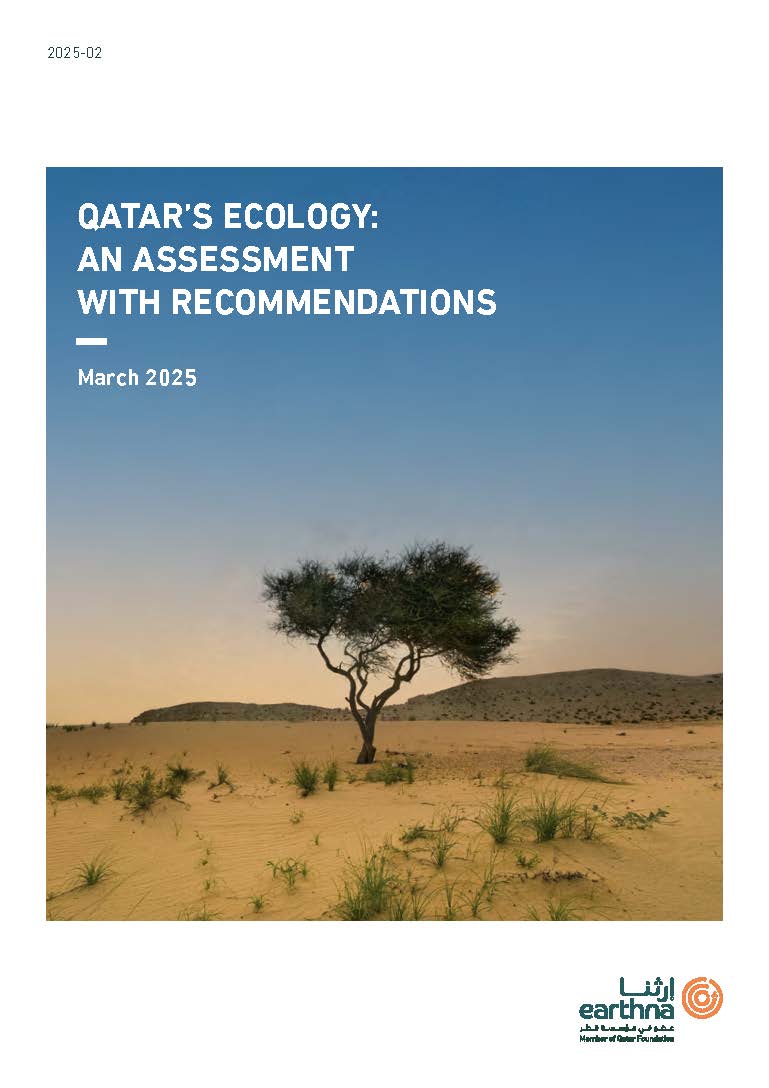
Qatar’s Ecology: An Assessment with Recommendations – Summary Report presents a comprehensive overview of the state of Qatar’s natural environment, highlighting the key challenges and opportunities for ecological sustainability. Developed by Earthna, the report draws on interdisciplinary research to assess Qatar’s ecosystems—terrestrial, marine, urban—and the human dimensions influencing them.
The study is divided into three parts:
1. Qatar’s Physical Environment – Examines geological, hydrological, and climatic factors that shape natural habitats, emphasizing groundwater scarcity, soil degradation, and rising temperatures.
2. Qatar’s Ecology – Explores the biodiversity of terrestrial and marine ecosystems, documenting species richness, habitat loss, and the impact of urbanization, overgrazing, pollution, and invasive species.
3. Human Response to Nature – Analyzes the role of education, environmental law, sustainable tourism, and community engagement in driving ecological awareness and action.
Qatar’s unique ecosystems, including rawdas, wadis, coral reefs, seagrass beds, and mangroves, are increasingly threatened by climate change and development pressures. Despite having 25.5% of land under protection, enforcement gaps and data limitations persist.
Key recommendations include:
• Expanding protected areas and restoration projects.
• Strengthening environmental policy enforcement.
• Promoting ecosystem-based management and climate adaptation.
• Integrating sustainability into education, tourism, and land use planning.
The report emphasizes the need for better ecological monitoring, policy coordination, and investment in sustainability education and research. It calls for stronger collaboration between government, academia, and civil society to build a resilient ecological future for Qatar.
